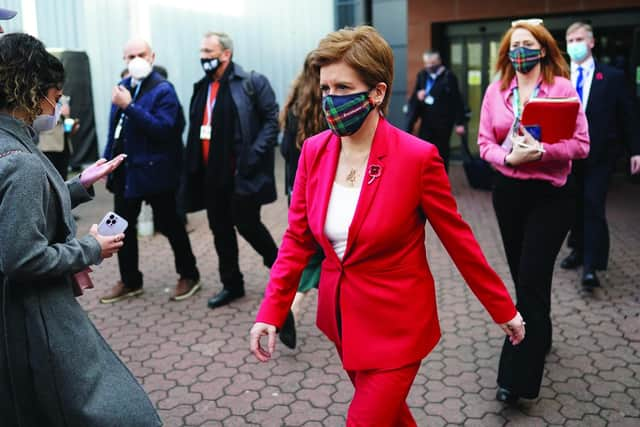Sustainable Scotland: How UN COP27 climate summit is chance for Scotland to lead by example
Last November, international attention was on Glasgow for COP26, the world’s biggest conference focused on the planet’s biggest crisis. A year on, other global crises, including Russia’s invasion of Ukraine and rising food and energy prices, have dominated attention.
Yet few have recognised that many of the causes, and indeed solutions, to these crises are linked and insufficient action has been taken to address them. COP27 in Egypt must tackle this failure. After all, we're already over a quarter of the way through this critical decade for action.
Advertisement
Hide AdAdvertisement
Hide AdThe world badly needs climate leadership. So can Scotland use COP27 to show it, by making meaningful, ambitious climate announcements that would encourage other countries to follow this example? We hope so.
The latest UN report shows that the likelihood of keeping temperature rises to 1.5C is becoming increasingly slim, and ever more devastating impacts are already being seen across the world – such as the catastrophic flooding in Pakistan and severe drought in the Horn of Africa. And yet, as well as falling short on emission reduction commitments, COP26 failed to deliver the financial help that’s urgently needed by low and middle income countries, which have done least to contribute to the climate crisis but already face the most severe impacts.
A key topic at the talks is the provision of finance to help countries mitigate and adapt to climate change. Global progress has been much too slow, with the already inadequate pledge of rich countries to deliver $100 billion by 2020 still not delivered. In addition, Global South countries have long called for ‘Loss and Damage finance’ – this refers to the irreversible climate impacts on lives and livelihoods. Currently some of the world's poorest countries have to foot the bill to recover from extreme weather events, instead of the biggest polluters who have caused the crisis.
Scotland showed leadership on Loss and Damage at COP26 by becoming the first nation to commit funding, with the First Minister encouraging others to follow suit and saying it was “a debt we owe”. The £2 million committed is very far from reflecting Scotland’s fair share, but was symbolically significant. Positively, since then, Denmark and the Wallonian government in Belgium have also made commitments, reinforcing the importance of climate leadership.
But much more is needed, and all rich nations must make commitments commensurate with the losses and damages being faced. To show true climate leadership, the funds must be raised from new and additional sources of finance, based on the ‘polluter pays’ principle, so that those who do the most harm contribute most towards the costs and are encouraged to change their behaviour.


At COP26 it was agreed that all countries needed to bring forward improved commitments to reduce emissions before the end of 2022. However, so far the renewed combined pledges put us on track to a deadly 2.5C of heating. In Scotland, progress in reducing emissions has also not kept pace with legal targets, with three of the last four emissions targets missed. The target for 2020 was only met due to a temporary drop in emissions resulting from measures taken to protect public health during the pandemic. Long-term, sustained reductions require systemic changes across all sectors. Scotland cannot be a world leader on climate action if we continue to miss our own targets.
As well as setting an example internationally, positive announcements on climate action from the Scottish Government at COP27 could also help tackle the cost-of-living crisis and achieve wider health, social and wellbeing goals in Scotland. For example, improving public and active transport and insulating homes would reduce emissions but also improve air quality and health and tackle poverty. And investing in renewables would boost energy security while reducing our dependence on the fossil fuels that make devastating floods, droughts and hunger much more likely.
At COP27 all rich nations must step up to deliver emissions reductions, invest in just energy transitions and dramatically increase support to communities facing the consequences of their negligence. If Scotland's ambitions to be a climate champion on the world stage are to be fulfilled, we must do more to ensure we deliver on our climate promises. COP27 presents a huge opportunity to do this.
Becky Kenton-Lake is coalition manager for Stop Climate Chaos Scotland, a campaign group made up of more than 60 environmental and international development non-governmental organisations
Comments
Want to join the conversation? Please or to comment on this article.